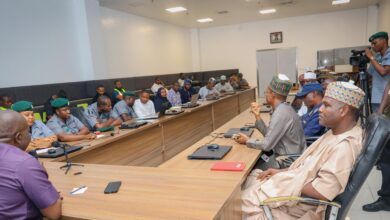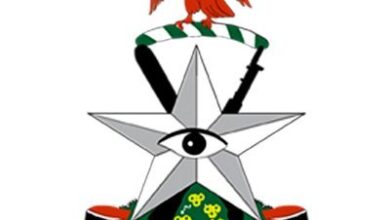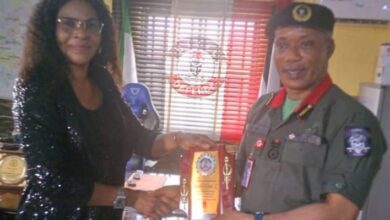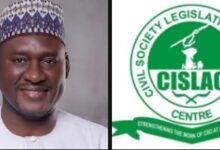
The Albinism Association of Nigeria (AAN) has asked for an advanced policy implementation of inclusive education.
AAN made this known in a meeting with education officers and stakeholders on Thursday, April 25 at Stonehedge Hotel, Abuja.
The Executive Director (ED) of the Association, Mrs. Bisi Bamishe in her address said that the policy intends to improve the status of ‘Persons With Albinism’ (PWAs) by harnessing their full potentials and guaranteeing equal access to education, social, health, economic and political opportunities.
Mrs. Bamishe explained that it is multi-sectorial and provides a holistic approach to improving the standard of life of PWAs.
“The policy is aimed at mainstreaming Albinism into every sector of development in Nigeria. Based on the issues stated above, the rights of persons in this group cannot be disregarded. It is hoped that effective implementation of this policy and its guidelines will guarantee improved conditions of life for PWAs,” she stated.
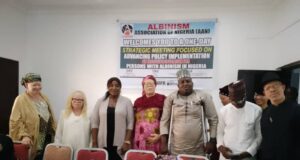
The Executive Director noted that the federal government has taken keen interest in Albinism and the challenges faced by PWAs in terms of their skin problems, vision, low self-esteem, myths, discrimination and stigmatization.
“According to the Knowledge, Attitude and Practices (KAP) research documented by UNICEF (2011), the population of PWAS in Nigeria is estimated at about six million, out of which 40% are children.
“To mitigate the learning challenges faced by PWAs and create educational access, a Blueprint on Albinism Education in Nigeria was developed by the Federal Ministry of Education.
“Consequently, the need for a more encompassing policy that will address the multi-faceted needs of Persons with Albinism became imperative.
“In 2012, a Ministerial Committee was set up by the then Honourable Minister of State for Education, Chief (Barr.) Ezenwo Nyesom Wike, to develop a National Policy on Albinism,” she added.
According to her, the multifarious committee comprised of representatives from the Federal Ministries of Education, Federal Ministry of Health, Federal Ministry of Women Affairs and Social Development, Federal Ministries of Justice, Finance, Labour & Employment and Budget.
The committee also included Office of the Head of the Civil Service of the Federation, National Population Commission (NPopC), National Human Right Commission (NHRC), Nigerian Educational Research & Development Council (NERDC), Universal Basic Education Commission (UBEC) and National Orientation Agency (NOA).
Others are National Agency for Mass Literacy, Adult and Non-Formal Education (NMEC), Civil Society Action Coalition on Education for All (CSACEFA), Federal Capital Territory Administration Education Secretariat and The Albino Foundation (TAF).
Commenting on the implementation strategies, Mrs. Bamishe opined that the policy and its implementation guidelines will greatly improve the cultural, political and socio-economic well-being of PWAs, thereby giving them the opportunity to be useful to themselves and contribute their quota to national development.
“This policy takes particular cognizance of the various challenges of PWAs which cut across the four (4) core clusters of Fundamental Human Rights to survival, protection, development and participation in the general sphere of human endeavours.
“This policy fully engages relevant Government Ministries, Departments and Agencies, the private sector, media, Civil Society Organizations and the development partners to intervene in activities and programmes that will maximally impact on the lives of PWAs. Examples of such activities and programmes are advocacy and sensitization, policy formulations and reviews, empowerment and capacity building.
“It is against this background that, this meeting today is designed to avail us the opportunity to interact and make meaningful efforts that will help to actualize the Vision, Mission, Core objectives, Policy targets and outcomes, implementation strategies which we are expected to play a part via the group work that will be constituted in due course.
“This policy also provides for the protection of the rights of PWAs, the roles and responsibilities of Government and other stakeholders.”
She further disclosed that the policy implementation is divided into four major components; Legal, Education, Health, Social Security and Other Services, and Legal.
“Effective law enforcement shall be put in place in response to attacks and violations against PWAs; and orientate and empower appropriate agencies, institutions and bodies to ensure that the Fundamental Human Rights of PWAs are effectively protected and enforced.”
On education, Mrs. Bamishe said it will “provide visual and other learning aids for PWAs through Special Needs Education Branch at Federal, State and Local government levels; Support school counsellors and teachers in their duties of counselling and guiding students on the Albinism phenomenon in Basic, Secondary and Tertiary Institutions.”
She added: “Increased advocacy and broad-based awareness and sensitization by the media, Ministries, Departments and Agencies, private sector and other stakeholders against negative societal perceptions of Albinism; and train and re-train teachers, parents, health workers and other care-givers to understand the challenges and management of PWAs.”
As for health, The ED mentioned that health care workers and midwives shall be trained and retrained on how to handle PWAs; provide basic information and essential medical services for the prevention of eye and skin health issues related to Albinism.
Others are to provide counselling and psycho-social services for PWAs by health systems stakeholders in public and private sectors; secure free, accessible, qualitative treatment and rehabilitation of PWAs with skin cancer, sunburn and low vision at all levels of government.
With the social security and other services policy, relevant government agencies, Civil Society Organizations (CSOs) and development partners shall extend their purview to alleviating the challenges of Albinism.
“Stakeholders shall partner with the Albino Foundation and other albinism focus groups to intervene in activities and programmes to support the provision of visual, dermatological and other aids for PWAs in communities; and Social welfare schemes should be inclusive of PWAs to facilitate their socio-economic well-being.”
Similarly, Ruth E. Madojemu stated that persons with albinism in Nigeria face significant barriers in accessing quality education, including discrimination, lack of awareness, and inadequate policy implementation.
“While Nigeria has enacted legislation and policies to promote inclusive education and protect the rights of persons with disabilities, including albinism, there remain gaps in the implementation.
“Existing policies such as the National Policy on Inclusive Education 2023 provides a framework for inclusive education but require strengthened implementation mechanisms,” Ruth said.
She emphasised that inclusive education is crucial for persons with albinism as it promotes their right to education and ensures equal access to learning opportunities.
“By embracing diversity and accommodating individual needs, inclusive education fosters a supportive learning environment where all students, regardless of ability or difference, can thrive academically and socially.”
Ruth highlighted four key strategies for advancing policy implementation such as advocacy, capacity building, awareness campaigns and collaboration.
“Advocacy: Engage with government officials, policymakers, and civil society organizations to advocate for the prioritization of inclusive education for persons with albinism.
“Capacity Building: Provide training and professional development opportunities for educators, administrators, and other stakeholders to enhance their understanding of albinism and inclusive teaching practices.
“Awareness Campaigns: Raise awareness about the rights and needs of persons with albinism through public campaigns, community outreach, and media initiatives.
“Collaboration: Foster partnerships and collaboration between government agencies, NGOs, community-based organizations, and disability rights advocates to leverage resources and expertise in advancing inclusive education policies,” she explained.
She gave case studies with inclusive schools project saying “highlights of a successful inclusive education project in Nigeria that has effectively supported the integration of students with albinism into mainstream schools are the Unity Comprehensive school in Abuja, CADET Academy, etc. These case study highlights the successful Inclusive Schools Project, which integrates students with albinism into mainstream education.
“Additionally, it showcases empowerment programs providing education and vocational training, fostering social inclusion.
“Key features of the project include sensitization, training, resource provision, and peer support. Empowerment initiatives offer scholarships, vocational training, entrepreneurship support, and advocacy.
“The combined efforts have led to increased enrollment, improved academic performance, enhanced social inclusion, and reduced stigma. Overall, these initiatives demonstrate the transformative impact of education and empowerment in promoting inclusion for persons wit albinism in Nigeria.”
Ruth also noted empowerment initiatives saying “showcase initiatives that empower persons with albinism through education, vocational training, and skill-building programs, leading to improved outcomes and increased opportunities for social inclusion.”
She further highlighted the challenges including stigma and discrimination, resource constraints and accessibility barriers.
Ruth stressed that stigma and discrimination address negative attitudes and misconceptions towards persons with albinism through education and advocacy efforts, while resource constraints advocate for increased funding and resources to support inclusive education programs and infrastructure.
“Accessibility barriers remove physical, social, and economic barriers that hinder access to education for persons with albinism, such as inaccessible school facilities and limited transportation options,” she added.
While providing solutions, Ruth mentioned sensitization campaigns targeting communities, schools, and healthcare providers to promote understanding and acceptance of albinism.
Ruth disclosed that policy reform advocate for policy reforms to strengthen legal protections, improve enforcement mechanisms, and ensure adequate funding for inclusive education initiatives – and community engagement involve families, communities, and persons with albinism themselves in decision-making processes to ensure that policies and programs reflect their needs and preferences.
She reiterated that inclusive education is a fundamental human right that must be upheld for all individuals, including those with albinism.
“By implementing targeted strategies, addressing challenges, and fostering collaboration, we can advance policy implementation on inclusive education in Nigeria and create a more inclusive and equitable society. Let us join hands to ensure that every person with albinism has the opportunity to fulfil their potential and contribute meaningfully to our nation’s development.”
The Programme Manager of the Association, Joe Akuse had earlier stated that the goal of the meeting was to develop actionable recommendations that can inform policy decisions and drive positive change in Nigeria.
According to Akuse, the Albinism Association of Nigeria is an umbrella of persons with albinism in Nigeria, dedicated to see that anyone affected should be included in every scheme of things in the country by bringing to light challenges faced by persons with albinism.
Albinism is a genetic condition that results in a lack or absence of melanin pigment in the skin, hair, and eyes. In Nigeria, albinism is seen as a curse by some people and many albinos face discrimination, stigmatization, and even violence.
The Albino child in Nigeria faces numerous challenges, including discrimination and social exclusion. Nigerian society is ‘largely ignorant’ about the condition and the challenges that come with it. This ignorance often leads to discrimination and stigmatization, with many people believing in untrue traditional belief that albinos are cursed or that their body parts have magical powers.
In addition, albinos in Nigeria are also at an increased risk of skin cancer due to the lack of melanin pigment in their skin. Exposure to the sun’s harmful UV rays can lead to skin damage and ultimately, skin cancer. Unfortunately, many albinos in Nigeria cannot afford to buy sunscreen and other protective clothing due to poverty.
While AAN’s vision statement is to attain a fair, secure and socially inclusive society that empowers members and provides unfettered access to opportunities for self fulfillment and dignity of human life, their mission is to unite and protect the rights and interest of Persons with Albinism (PWAs) against discrimination and marginalization in the society.
AAN also has a ‘motto’ which says “for the love of all”.



